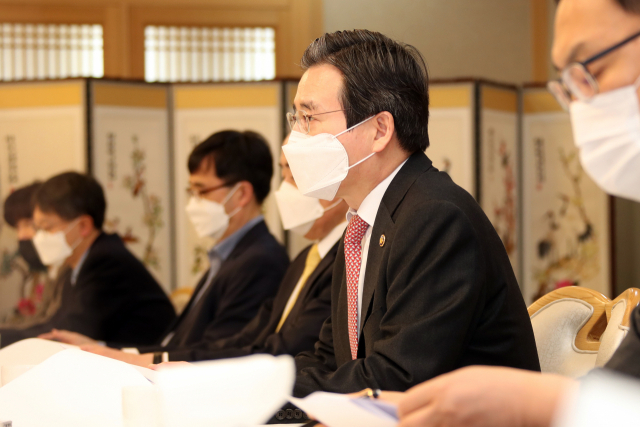Interest rates and international oil prices highest in two years
Powell “Temporary Inflation Perseverance”
Kim Yong-beom “The factors of inflation always exist”
 viewer
viewer
“The dog that does not bark began to bark.”
In 2013, the International Monetary Fund (IMF) described inflation as a “dog that does not bark,” but the inflation warning sound that has not sounded for nearly eight years is increasing.
The 10-year Treasury bond interest rate soared to the 2% level during the intraday after two years, and oil prices also returned to the level two years ago. After the spread of the novel coronavirus infection (Corona 19) vaccine, retaliatory consumption has spread, and various raw material prices are rising, and both supply and demand are approaching with inflation.
According to the Treasury Bond market on the 5th, the 10-year Treasury bond interest rate soared to 2.016% at one time in the morning of the day, and ended at 1.992%, finding stability due to the announcement of the growth rate in China in the afternoon. In the afternoon, the KOSPI, which broke the 3,000 line in response to the US Federal Reserve Chairman Jerome Powell’s statement of endurance, ended the deal at 3,026.35, down 0.57%.
The rise in Treasury bond yields on this day was a result of a combination of the government’s rapid increase in issuance of deficit Treasury bonds to finance disaster support, as well as the U.S. Treasury bond interest rate that surged due to Powell’s remarks, expectations for increased consumption, and the shortage of global supply of oil and grains due to abnormal climate. . Long-term interest rate hikes following inflation concerns could increase volatility in the asset market, which has raised prices due to increased borrowing.
Increasing concerns over inflation is the sharply rising oil and other commodity prices. On the 4th (local time) on the New York Commercial Exchange, the price of Western Texas crude oil (WTI) for April soared by $2.55 per barrel to $63.83. It is the highest since April 2019. The price of copper was $8,786 per ton, twice as high as a year ago.
Concerns have also emerged from the Korean government, which had evaluated inflation concerns as excessive. Kim Yong-beom, the 1st Vice Minister of the Ministry of Strategy and Finance, said at the innovation growth strategy review meeting on the day, “There are always inflation risk factors such as increased global liquidity, higher inflation expectations, and rising raw material prices including crude oil.” Warned.
The government, which has been overly concerned about inflation, has entered a vigilant state in order not to step on the US train, which is losing market confidence, but the effect is unknown. In a video conference with the Wall Street Journal (WSJ) that day, Fed Chairman Powell tried to calm his concerns, saying, “There may be a rise in inflation due to the underlying effect of the resumption of economic activity, but this will only be a one-off”, but the market’s reaction was cold. As Chairman Powell did not come up with concrete measures, the 10-year US Treasury yield, which was 1.475% per year before the talks, surpassed 1.5% and soared to 1.58% at one time. The average interest rate for a 30-year fixed-rate home mortgage loan also surpassed 3% for the first time since July of last year. “It doesn’t matter whether the Fed can control inflation or not,” said Art Cashin’s UBS boardroom director. “If you believe the Fed will lose control in the market, it’s dangerous in itself.”
/Sejong = Reporter Yang Chul-min [email protected], Reporter Kim Young-pil [email protected], Reporter Shin Han-na [email protected]
< 저작권자 ⓒ 서울경제, 무단 전재 및 재배포 금지 >
